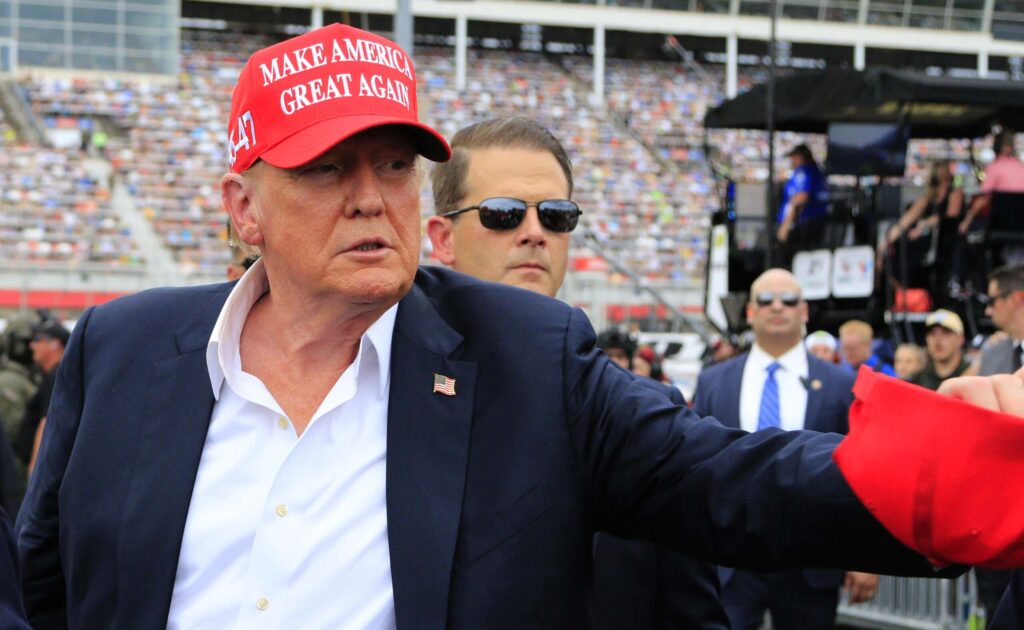Donald Trump’s campaign reminded voters last week that Joe Biden “was a key figure in passing the 1994 crime bill that disproportionately harmed the Black community through harsh sentencing laws and increased incarceration rates.” Speaking at the Libertarian Party’s national convention two days later, Trump pledged that if elected he would free Ross Ulbricht, who is serving a life sentence for running Silk Road, an online marketplace used by illegal drug traffickers. imprisonment.
Trump’s criticism of disproportionate drug penalties contradicts his own platform, which threatens defendants like Ulbricht. The former and possibly future president is hoping to have the best of both worlds, slamming Biden’s long history as a zealous drug crusader while painting himself as a tougher man.
Trump has been practicing this dance for some time. During the 2020 presidential campaign, he attacked Biden from the left on drug policy, denouncing him for pushing tough laws that disproportionately harmed Black people.
The stance is part of a political strategy to attract support from African Americans and white moderates troubled by Biden’s criminal justice record. The strategy also includes Trump’s commutation of sentences for non-violent drug offenders and his support for the First Step Act, the sentencing and prison reform package he signed in December 2018.
One of the beneficiaries of Trump’s clemency is Alice Johnson, a first-time offender serving a life sentence for her role in a Memphis cocaine trafficking operation. “There are a lot of people like Mrs. Johnson,” Trump told Fox News in 2018, “some of whom are serving long prison sentences.”
Trump highlighted Johnson’s case in his 2019 State of the Union address, in a 2020 Super Bowl ad, and at the 2020 Republican National Convention, where Johnson gave a moving speech. As a black woman who received a harsh sentence under inflexible drug laws, Johnson is a useful piece of evidence in Trump’s case that African American voters should be grateful to him and wary of Biden.
Trump later complained that his support for sentencing reform did not bring the political benefits he expected. “This is for African Americans,” he told one New York Times Journalists of 2022.
One reason may be that Trump sent conflicting signals when he bemoaned “very unfair” drug penalties. He expressed admiration for Philippine President Rodrigo Duterte, who compared himself to Adolf Hitler when urging the murder of drug addicts and repeatedly suggested the death penalty for drug traffickers.
Trump reiterated this policy proposal as he launched his current presidential campaign, culminating in the 2023 interview His kindness collides with his bloodlust. Trump was confused when Fox News anchor Bret Baier noted that people like Johnson “will be killed based on your plan.”
“No, no, no,” Trump said. “It will depend on the severity,” he added. He also noted that the death penalty he imagined would not apply retroactively to Johnson herself, saying that if that were the law at the time, it would have prevented her from participating in the drug trade.
Now, Trump says Ulbricht, who is serving a double life sentence plus 40 years for connecting drug dealers with drug consumers, deserves a second chance. “He’s been in office for 11 years,” Trump told Liberal delegates. “We’re going to take him home. We’re going to get him out.”
That Trump has not done so as president is not the only reason for skepticism. Trump said Johnson and Ulbricht’s life sentences were clearly unjust, but the death penalty was appropriate. He believes drug laws that disproportionately harm African Americans are troubling but should be enforced more aggressively.
Trump decried “rising incarceration rates” even as he promised a crackdown that would jail more people for violating anyone’s rights. According to the Trump campaign, Biden is terrible, but Trump is better because he is worse.
The only logic here is politics. Even that could be proven wrong if voters notice Trump’s incoherence.
© Copyright 2024 Creators Syndicate Inc.

